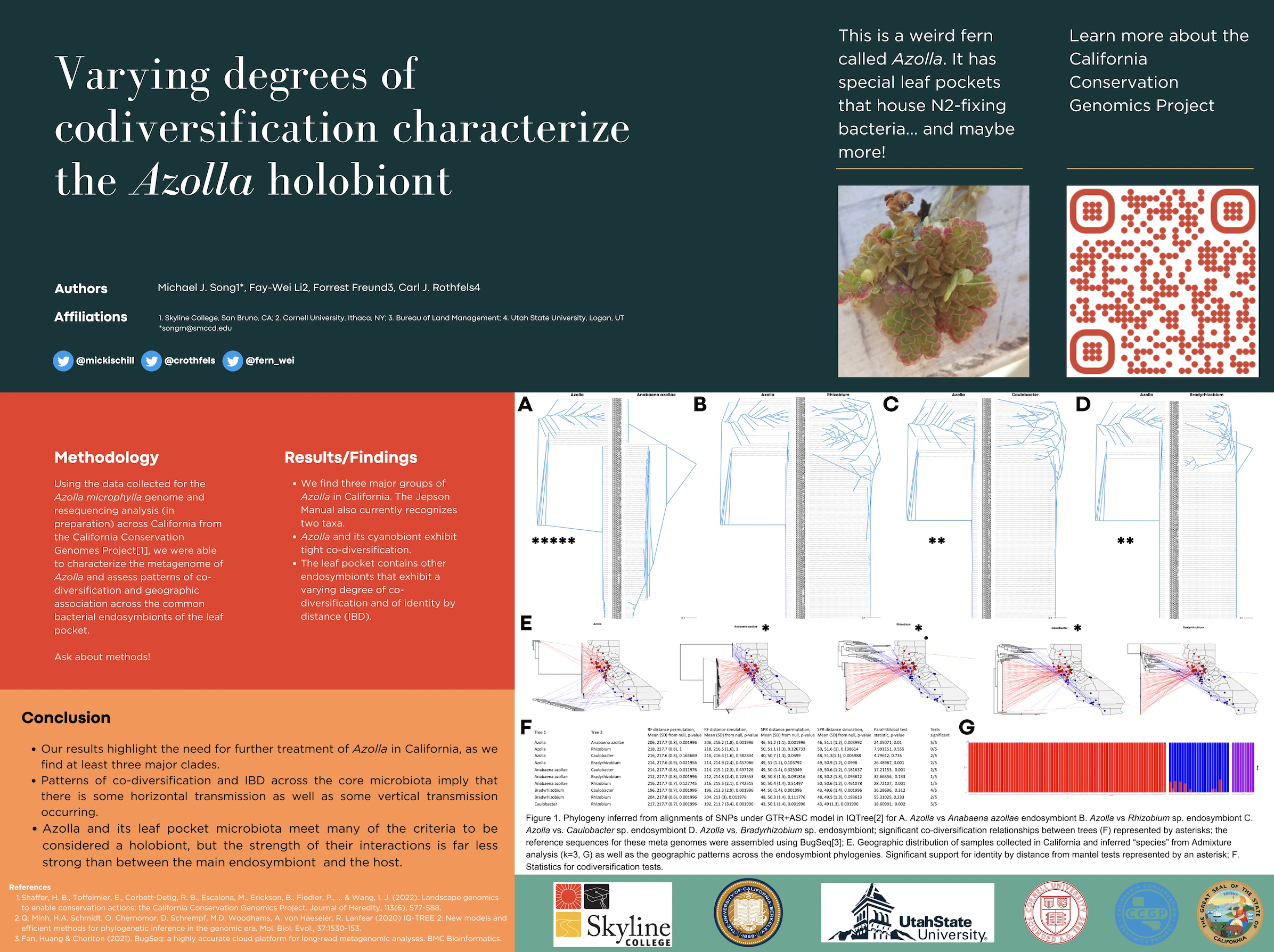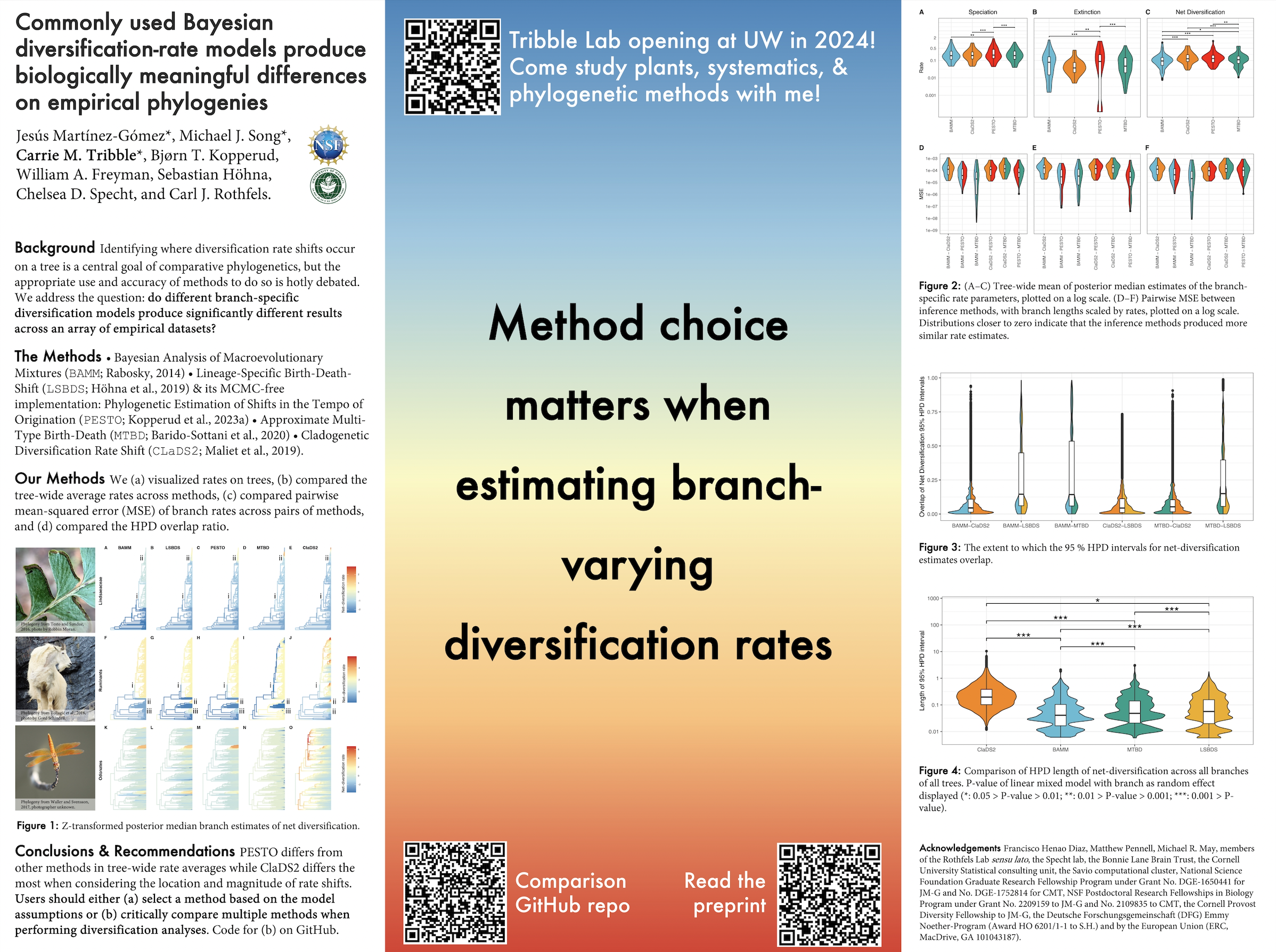New Job
I am currently Assistant Professor of Biology at Skyline College! I’ll be teaching BIOL 215 (Organismal Biology) in the Spring.
Research Interests
I study the ecology and evolution of plants. At UC Berkeley, I completed my PhD as a member of the Rothfels Lab (now at Utah State) in Integrative Biology. For much of my work, I have been interested in the role of polyploidy in plant evolution and in the dynamics of mobile elements. For my dissertation, I used synthetic neo-autotetraploid lines of Arabidopsis to elucidate the effects of polyploidy on the community of commensal microorganisms (the microbiome) that are associated with plants, and then determined whether these effects impact the plants’ responses to pathogens. It does! Find it now out in Current Biology!
One of my current projects involves researching the genomics of the Azolla symbiosis with the California Conservation Genomics Project (CCPG) led by the Rothfels Lab. Our preliminary data show a varying degree of co-diversification and identiy by distance across the microbial inhabitants of the leaf pocket! Azolla look pretty much the same, but we found that there are maybe three or more “species” in California (see below).

I also work on projects with these long-time research collaborators:
- Elijah Mehlferber, Post Doc at Georgia Tech, and the Koskella Lab on all things SynCom!
- Jeremy Coate, Visiting Assistant Professor of Biology, Reed College, on polyploidy related matters.
- Sarah Schaack, Assistant Professor of Biology, Reed College, on transposable elements.
- Jesus Martinez-Gomez and Carrie Tribble on assessing different methods for estimating branch specific shifts in diversification rates. Check out our recent poster and the new Tribble Lab:

- But also maybe you! Reach out if you want to collab!
I am broadly interested in plants and their uses as food, symbols, metaphors, and medicine. I presented some thoughts on plant knowledges at the 2018 UC Berkeley Comparative Literature Conference Future (Im)Perfect. I am also an amateur classicist and slavicist! At AATSEEL 2020, I gave a paper at a round table about the 19th century Russian metaphysical poets and contemporary American female country music. I am also an amateur sociologist and labor historian and have recently presented on labor organizing during the pandemic at The Society for the Study of Social Problems 2022 with comrades from the UC COLA Movement.
Holiday embedded video of me and my colleagues and comrades who fight the good fight, because our working conditions are our students’ learning conditions.